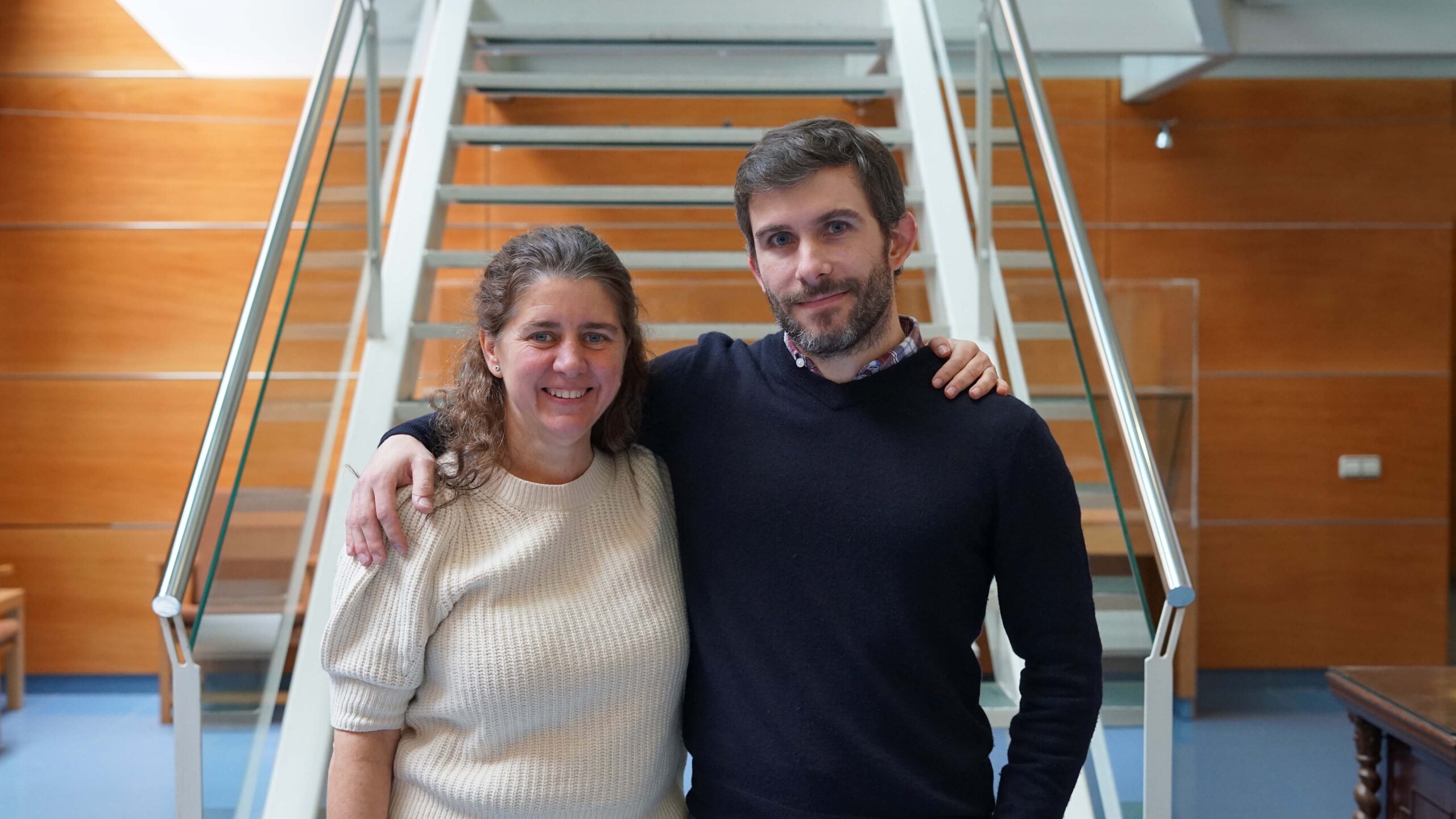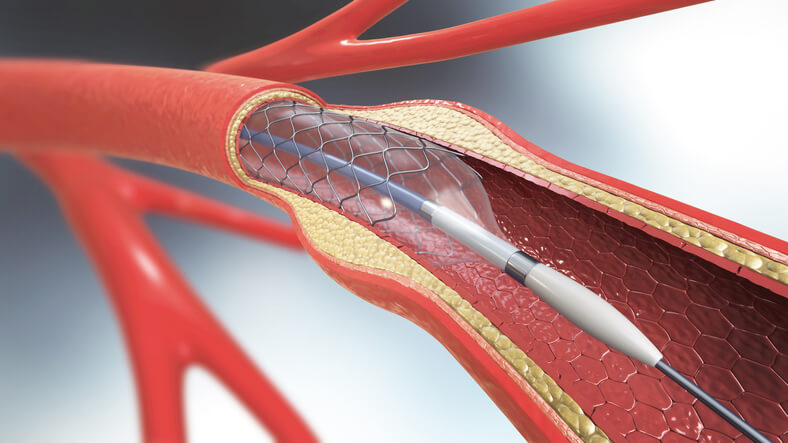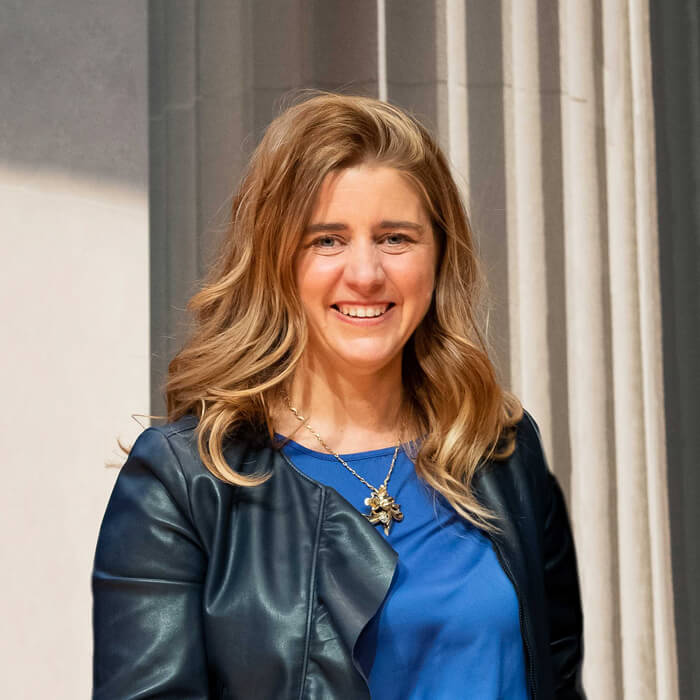Dr Gonzalo Muñoz recently defended his industrial doctorate thesis at IQS, in which he developed and evaluated a new sprayable vascular surgical adhesive as a vascular sealant that is more biocompatible and features better adhesion strength than commercial products.
Bleeding complications following a surgery affect a large number of patients. Over the past few decades, tissue adhesives and sealants have been developed as alternatives to sutures and staples for closing and sealing wounds or incisions. These materials are advantageous for their ease of use, short application time, and minimal tissue damage, making them suitable for minimally invasive procedures. However, their design and use in clinics present a series of challenges that must be faced based on an in-depth knowledge of the environment of the target tissue and its long-term performance after implantation, such as being able to control any bleeding complications that may arise in the postoperative process.
Within this context, Dr Gonzalo Muñoz Taboada conducted his doctoral thesis with the main objective of exploring the development, application, and evaluation of a novel sprayable vascular surgical bioadhesive. Under the title Preclinical development of sprayable hydrogels for instant sealing of vascular anastomoses, his thesis was supervised by Dr Mercedes Balcells Camps, Full Professor with the Department of Bioengineering at the IQS School of Engineering and researcher with the Vascular Engineering and Applied Biomedicine Group (GEVAB) and the Institute for Medical Engineering and Science – MIT, and Dr Natalie Artzi, Professor of Medicine at Harvard Medical School and MIT. He conducted this industrial doctorate in collaboration with the company BioDevek, a startup that develops medical devices for a new generation of surgical materials.
A new biomaterial for vascular sealing
In his thesis, Dr Muñoz Taboada carried out the development and optimization of the in vitro and ex vivo formulations of a new biomaterial, Dex:Alg:Den, as well as in vivo safety and efficacy studies and other aspects necessary for an effective clinical implementation of the biomaterial as a vascular sealant. To do so, he paid special attention to the interactions of functional groups present in tissues, especially amines and carboxylic acids, and to the control of pH, through the three components of the new material: Dextran, Alginate, and PAMAM Dendrimer.
Traditionally, surgical adhesive materials achieved their adhesive properties by covalent bonds with functional groups on the tissue surface. This strategy ensures strong adhesion, but high toxicity is associated with it. Dr Muñoz used a combination of covalent and ionic bonds with the tissue to maintain the high adhesive power while minimizing toxicity.
Once the role of each of the three components was determined, the next step was to carry out safety studies, according to the ISO 10993 standard for the evaluation of medical devices, and then test Dex:Alg:Den in different animal models to measure efficacy and compatibility with current clinical procedures.
The results obtained with the new biomaterial developed in this thesis were compared with the two sealing products available on the market: one more biocompatible and one more sealing. Dex:Alg:Den had the same adhesion strength as the stronger material and, at the same time, the same level of biocompatibility as the better of the two commercial products. Other possible risks, such as genotoxicity or irritation, were also studied, and favourable results were obtained in all cases.
Dr Muñoz Taboada’s research brings important perspectives to the field of surgical adhesives and biomaterials. The potential shown by Dex:Alg:Den to improve results in surgical procedures is significant, opening the door to a new era in the application of surgical sealants. Likewise, the importance of applying theoretical knowledge and mechanical understanding in practical clinical applications has been demonstrated in order to improve the quality of health care and patient experiences.
Related publications
Gonzalo Muñoz, et al., Overcoming the translational barriers of tissue adhesives, Nature Reviews Materials volume 5, 310–329 (2020)
Gonzalo Muñoz. Pere Dosta, Elazer R. Edelman. Natalie Artzi, Sprayable Hydrogel for Instant Sealing of vascular Anastomosis, Advanced materials, 34, issue 43, 2203087














